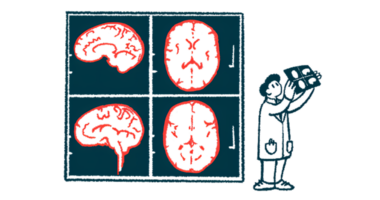Stem Cell Therapy Based on Exosomes May Treat MS, Study in Mice Suggests

Exosomes — tiny vesicles secreted by cells — collected from bone marrow stem cells and injected into a mouse model of multiple sclerosis (MS) helped to treat the disease, a study reports.
Specifically, this treatment eased myelin loss and neuroinflammation in the mice, and improved motor function, the researchers said. These results suggest that stem cell therapies for autoimmune and neurodegenerative diseases — perhaps ones not using cells directly — may one day be possible.
“This novel treatment will be tested on humans in early 2020, initially on people with type 1 diabetes,” Milad Riazifar, the study’s co-lead author and a doctoral student in pharmacological sciences assisting in the design of a City of Hope trial using this approach, said in a press release.
“If successful, it could pave the way for treating other autoimmune diseases, including multiple sclerosis,” he said.
The study, “Stem Cell-Derived Exosomes as Nanotherapeutics for Autoimmune and Neurodegenerative Disorders,” was published in the journal ACS Nano.
Prior experiments using bone marrow stem cells that had been activated, or stimulated, with the immune protein interferon gamma and injected directly into the bloodstream failed to work as intended. The cells often got trapped in filter organs rather than reaching their targets.
Looking to develop a cell-free approach, a team led by University of California, Irvine researchers collected exosomes from human mesenchymal stem cells (MSCs), or adult stem cells found in multiple tissues, such as the umbilical cord, bone marrow and fat.
Their experiments showed that these tiny (nano-sized) vesicles were able to be carried on the blood into the spinal cord, and may work to treat disease. Improved motor function — reflected in higher test scores of clinical relevance — were evident in the experimental autoimmune encephalomyelitis (EAE) mouse model of MS given the exosomes.
Treated mice showed lesser demyelination, or loss of the insulating layer of nerve fibers (myelin), that is characteristic of MS. Less neuroinflammation also was seen in the treated mice, evidenced by fewer damaging immune cells like macrophages and microglia, and fewer proinflammatory T-cells, infiltrating the animals’ spinal cord. All experiments used a control group of untreated disease mice for comparison.
Treatment with the exosomes also raised the spinal levels of a subset of regulatory T-cells (Tregs) that work to dampen excessive immune responses.
The exosomes were injected in the mice at the peak of disease. The researchers suggested that earlier treatment may be needed for optimal results. A pilot experiment using multiple injections at earlier timepoints showed a significant reduction of T-helper (Th) 17 cells, key players in MS, the investigators said.
Subsequent in vitro or lab experiments showed the exosomes slowed the proliferation of peripheral blood mononuclear cells — which include immune B-cells, T-cells, monocytes, and macrophages — and lowered levels of proinflammatory molecules released by Th cells 1 and 17, including interleukin (IL)-6, and IL-2, the researchers said.
In turn, the exosomes stimulated Tregs and increased the level of the immunosuppressive molecule IDO.
An RNA analysis showed that these vesicles contain regulatory and anti-inflammatory RNA molecules. Several anti-inflammatory and neuroprotective proteins — such as MIC-1, galectin-1 and heat shock protein 70 HSP70 — also were found in the exosomes.
“These results not only shed light on stem cell therapeutic mechanisms,” the study concluded, “but also provide evidence that MSC-derived exosomes can potentially serve as cell-free therapies in creating a tolerogenic [innate] immune response to treat autoimmune and central nervous system disorders.”






